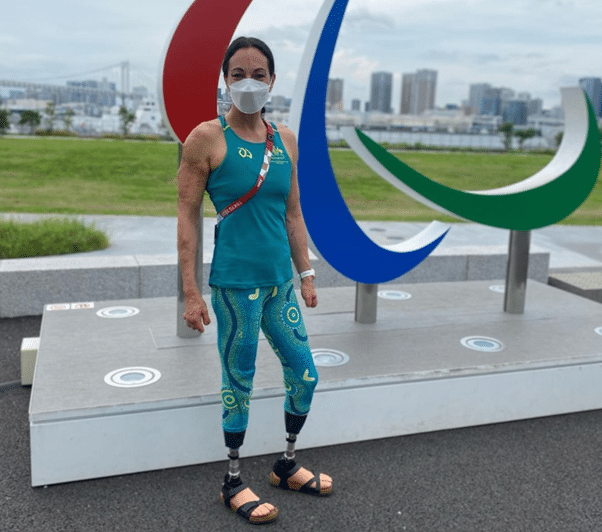
How to start important conversations about disability
Photo via @elizajane.ac on Instagram
Eliza Ault-Connell is no stranger to conversations about disability.
The Feros Care LAC (Local Area Coordinator), based in Canberra, had both legs amputated below the knee as a teenager after a bout of bacterial meningitis.
Eliza has since competed in para sports for over 20 years, including at various Paralympic and Commonwealth Games. She is also a mum to five children and has dedicated a lot of time to working towards a more inclusive, accessible and sustainable world.
With a new year having commenced, Eliza has some wonderful tips for how to start conversations about disability. This is a valuable read for all those who may battle misconceptions about disability, along with those who aren’t sure how to tackle potentially sensitive topics.
Remember – as people, we make all the difference
When coming to terms with her disability, Eliza knew her life was going to be different – she just wasn’t sure how it would map out. She enjoyed sport on a recreational level, and that soon became something bigger, leading to her competing in wheelchair track and road racing all over the world.
And while Eliza credits sport with playing a huge role in her recovery, she shares that the people around her were the most important thing.
“The people around me encouraged me and convinced me that my disability wouldn’t be a limiting factor,” Eliza says. “I’ve since been able to turn my disability into my greatest strength.”
Even if you don’t have a loved one with a disability, it’s important to remember just how important it is to support those with a disability getting exposure to the right opportunities.
“People are instrumental in allowing young people with disabilities to shape their future as they want to,” Eliza says. “And as a Local Area Coordinator, I’m enjoying connecting with the community and they are enjoying connecting with me.
“I’m passionate about providing them with some hope for the future, that they can operate within our community, have a voice and be heard – and operate effortlessly in a community and environment that is primarily geared towards able-bodied people.”
If you have a lack of understanding, getting involved is key
